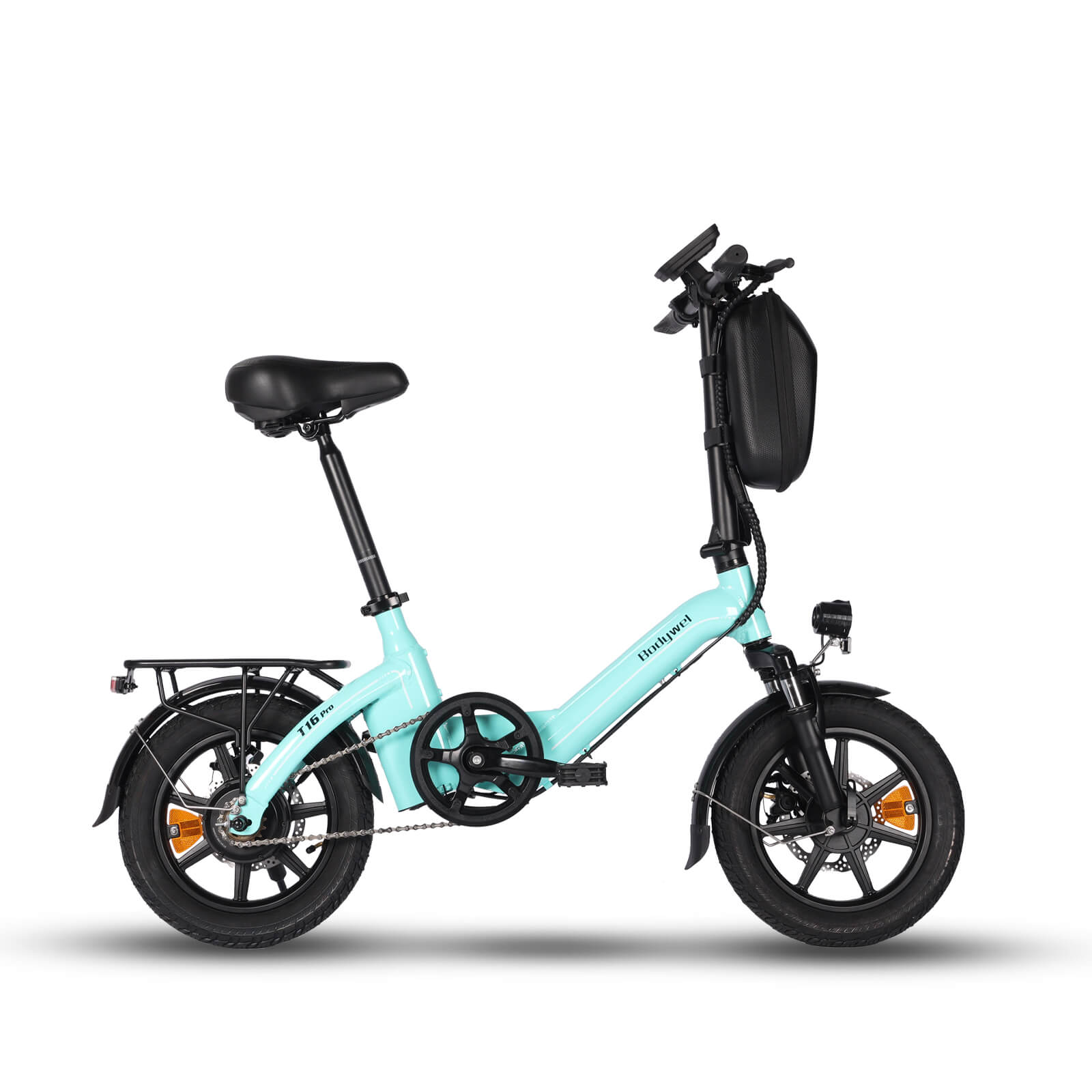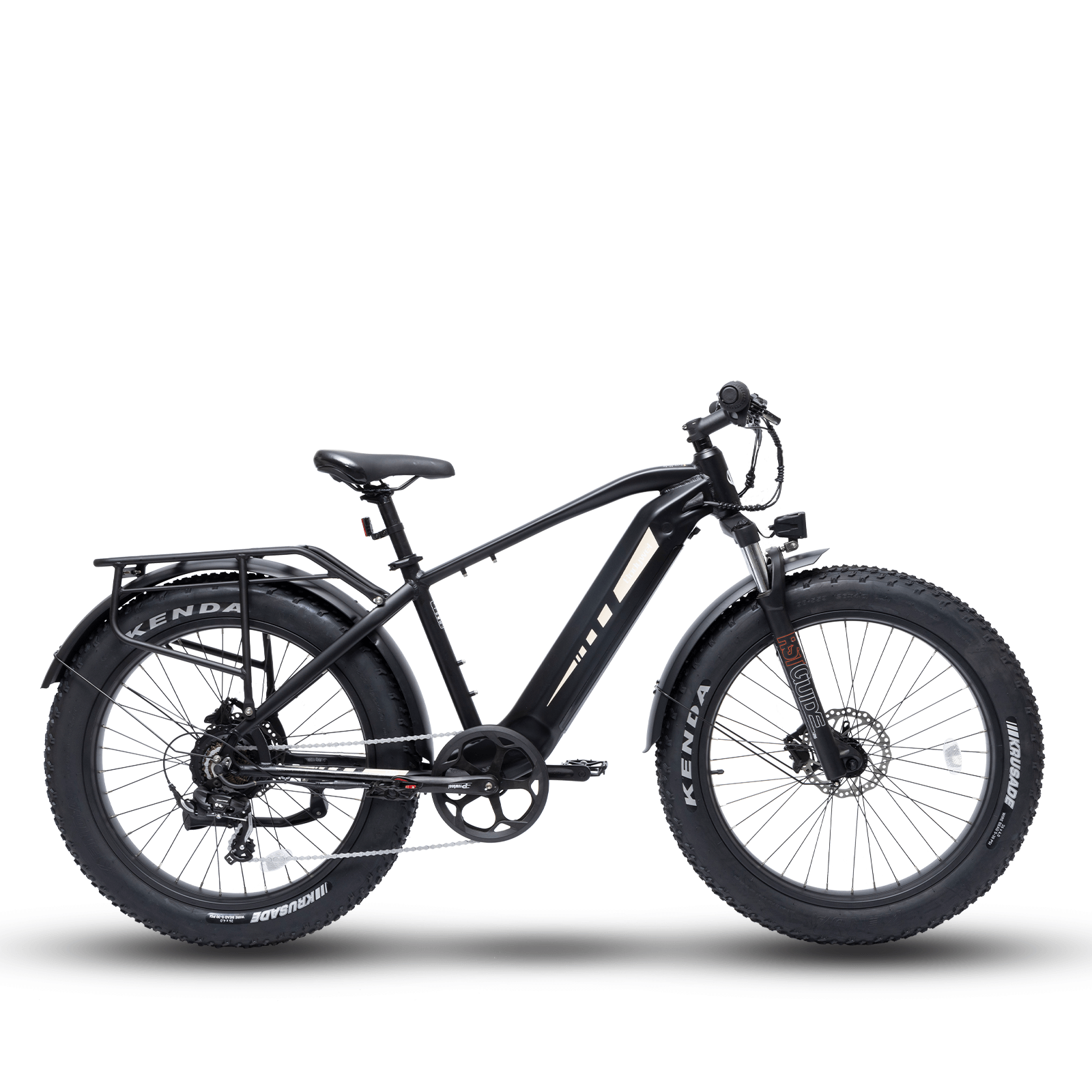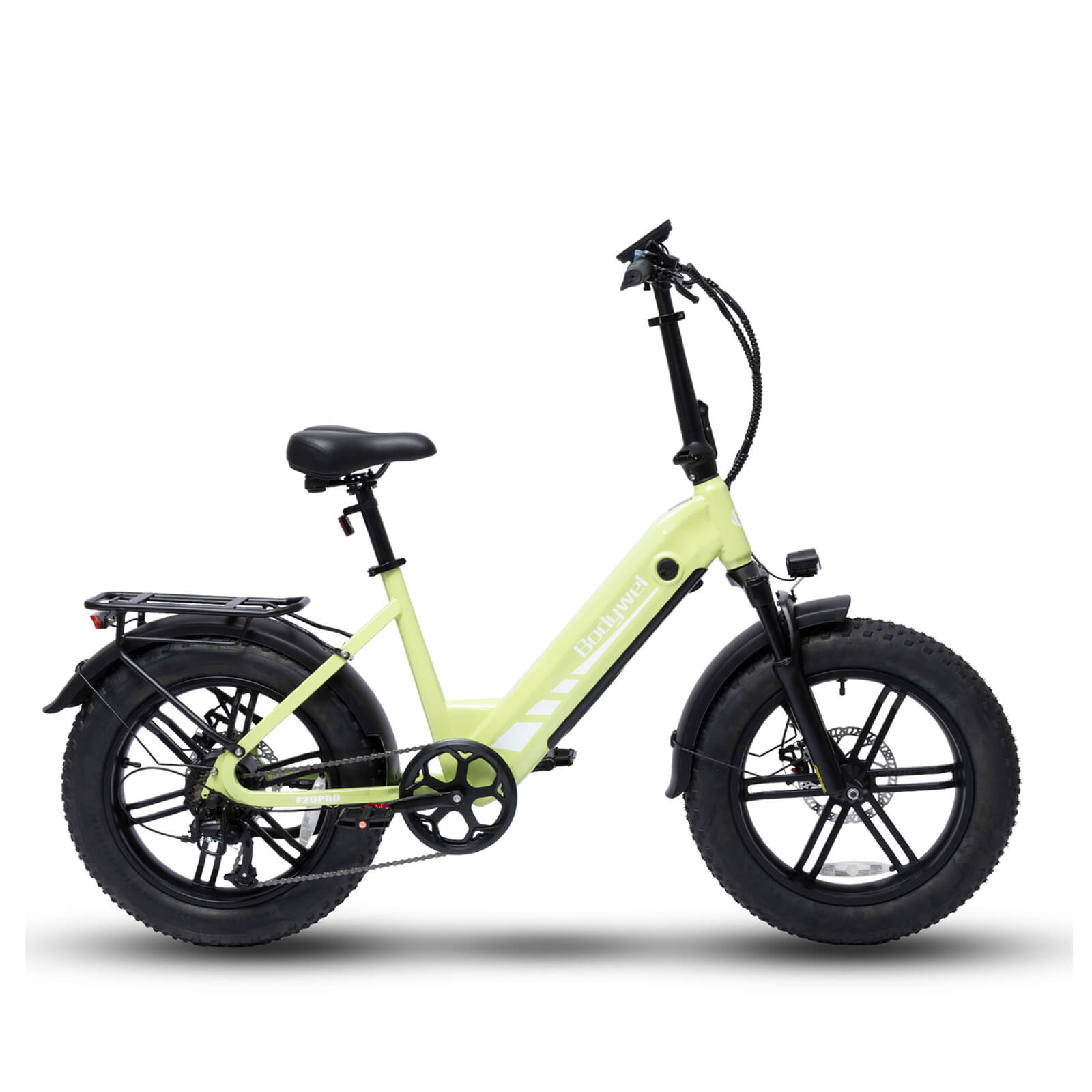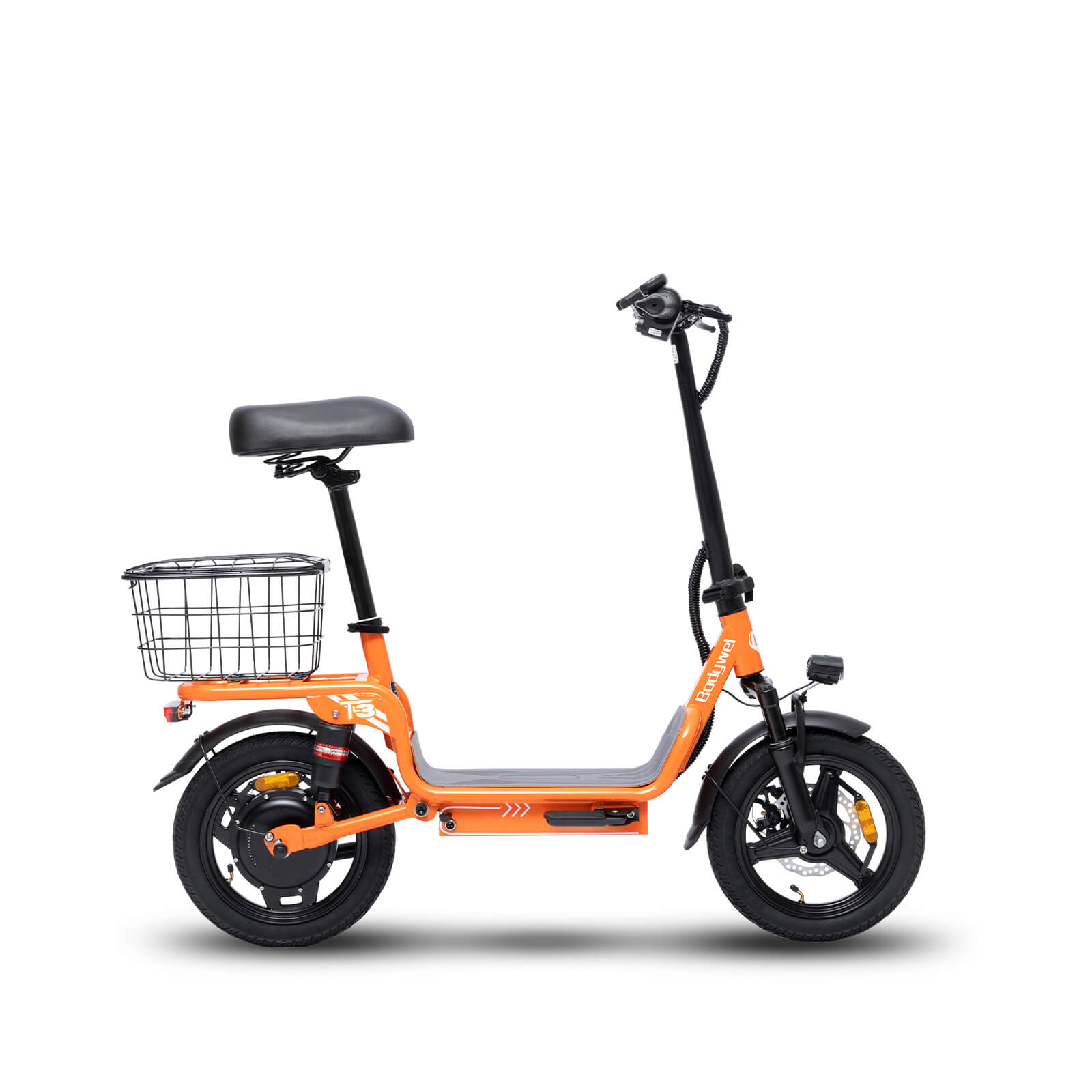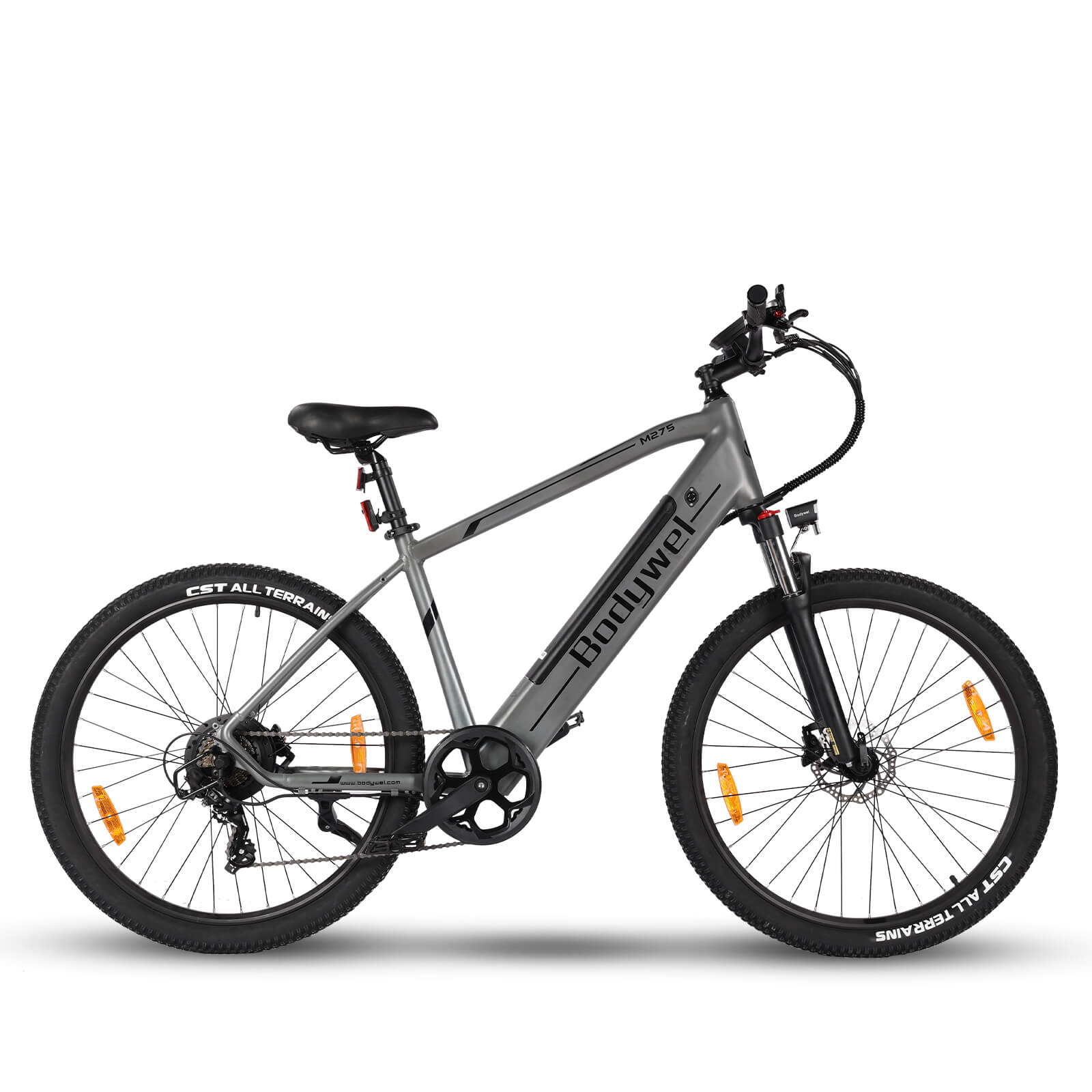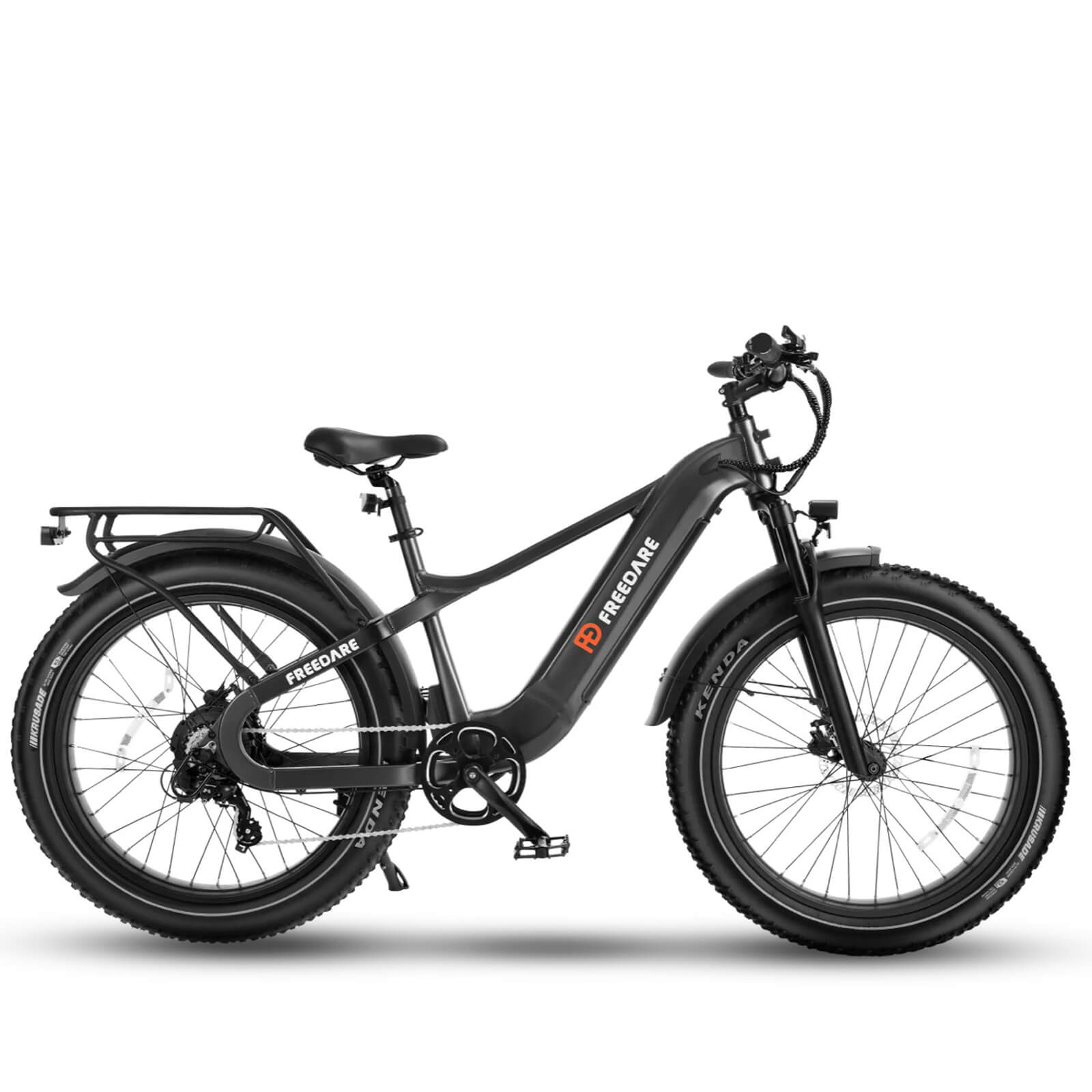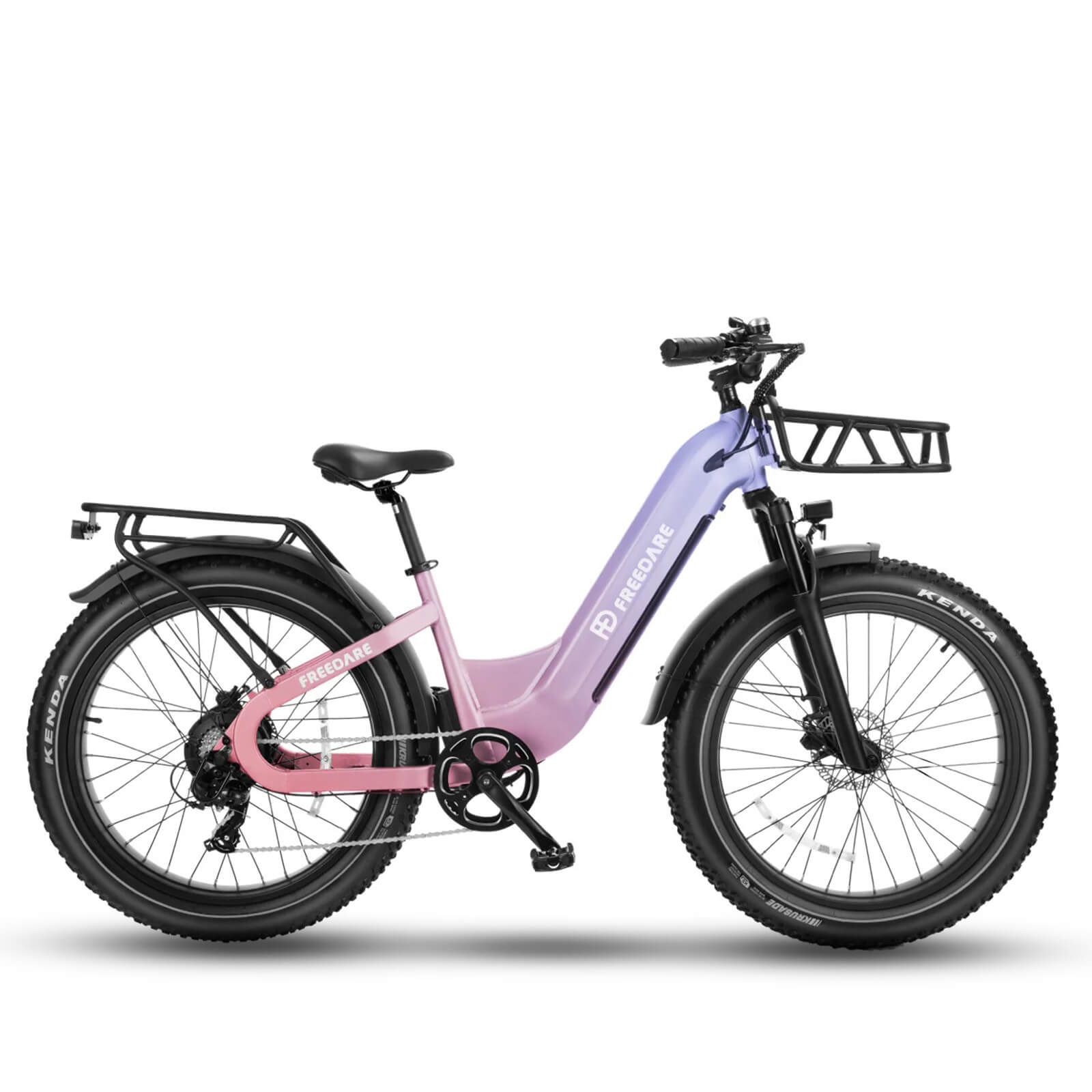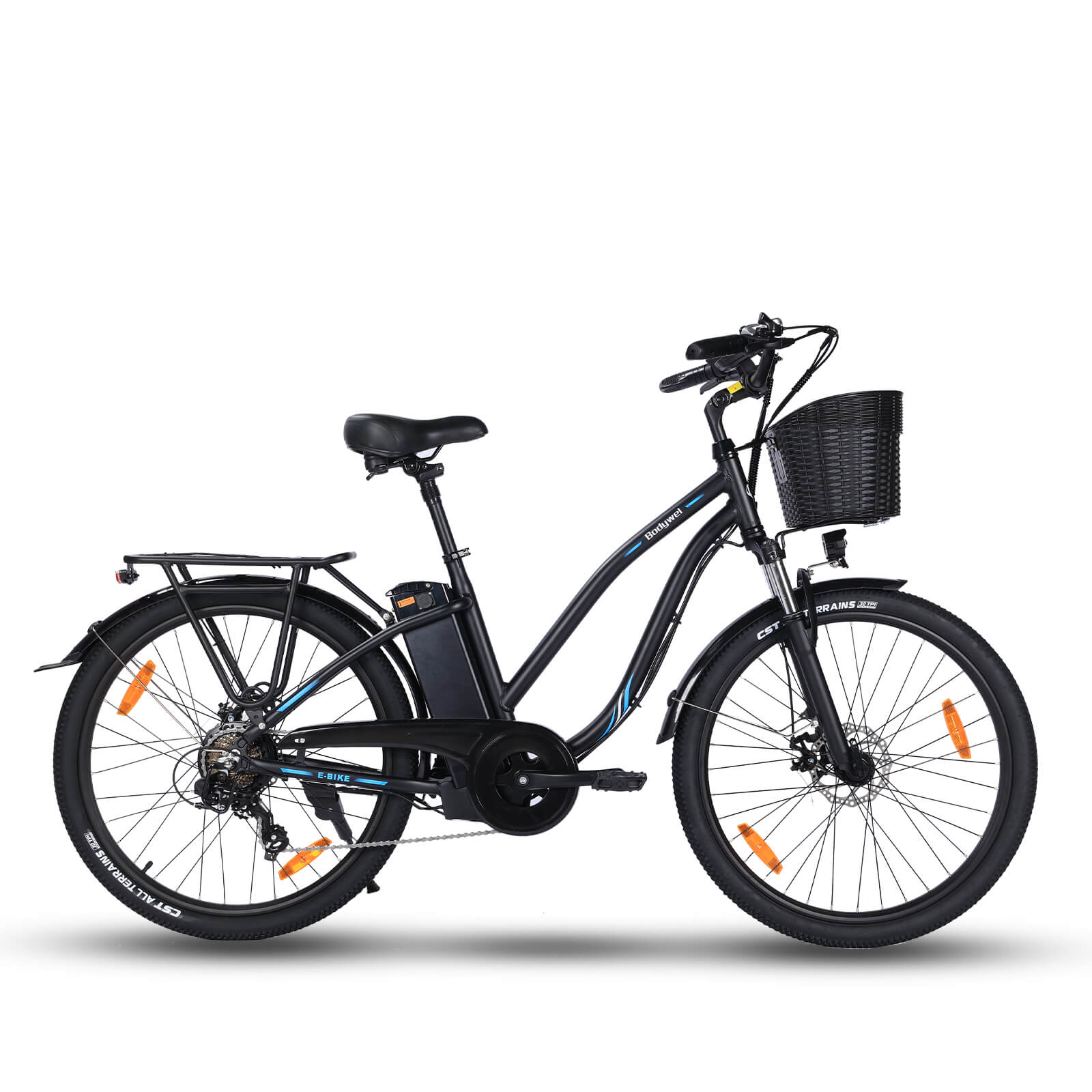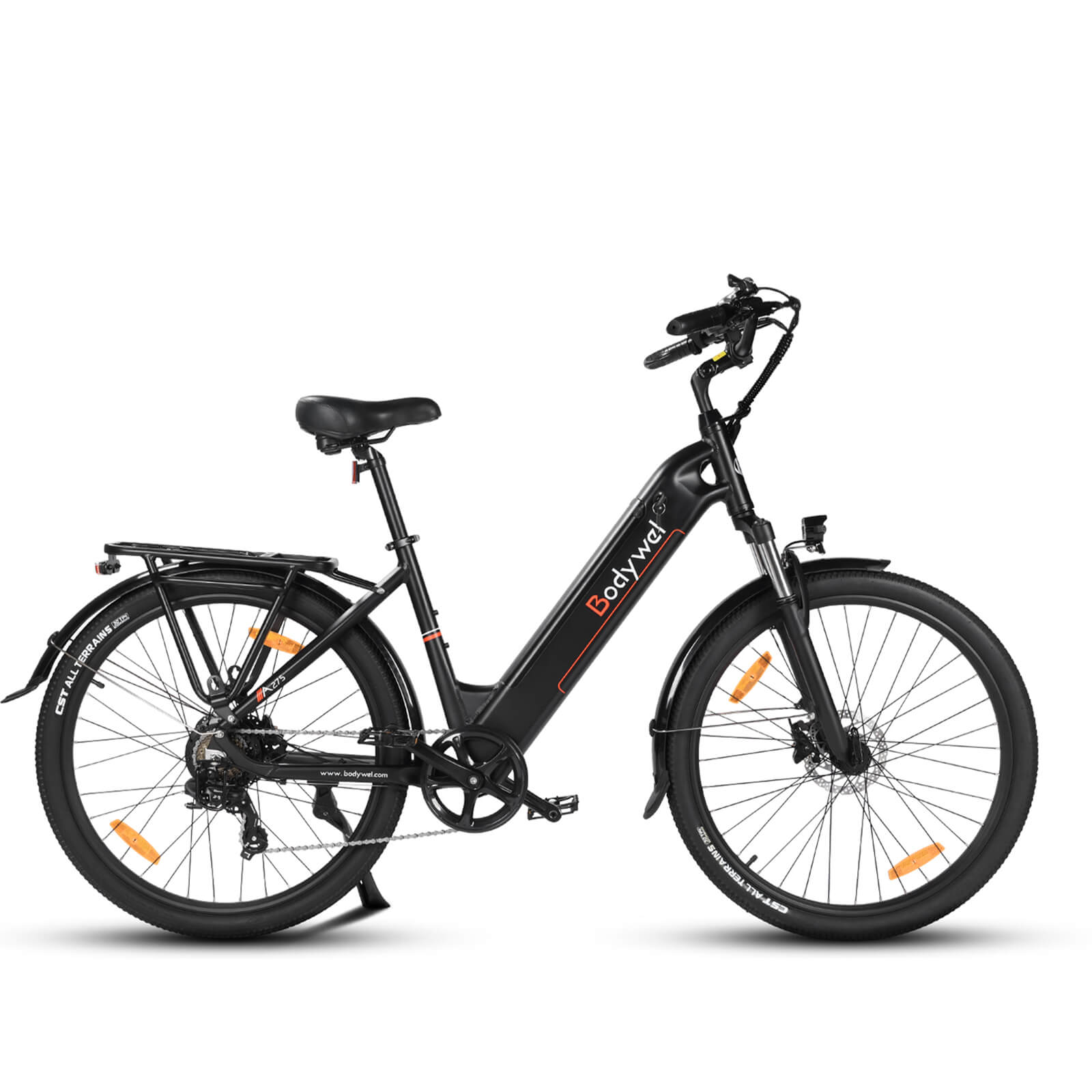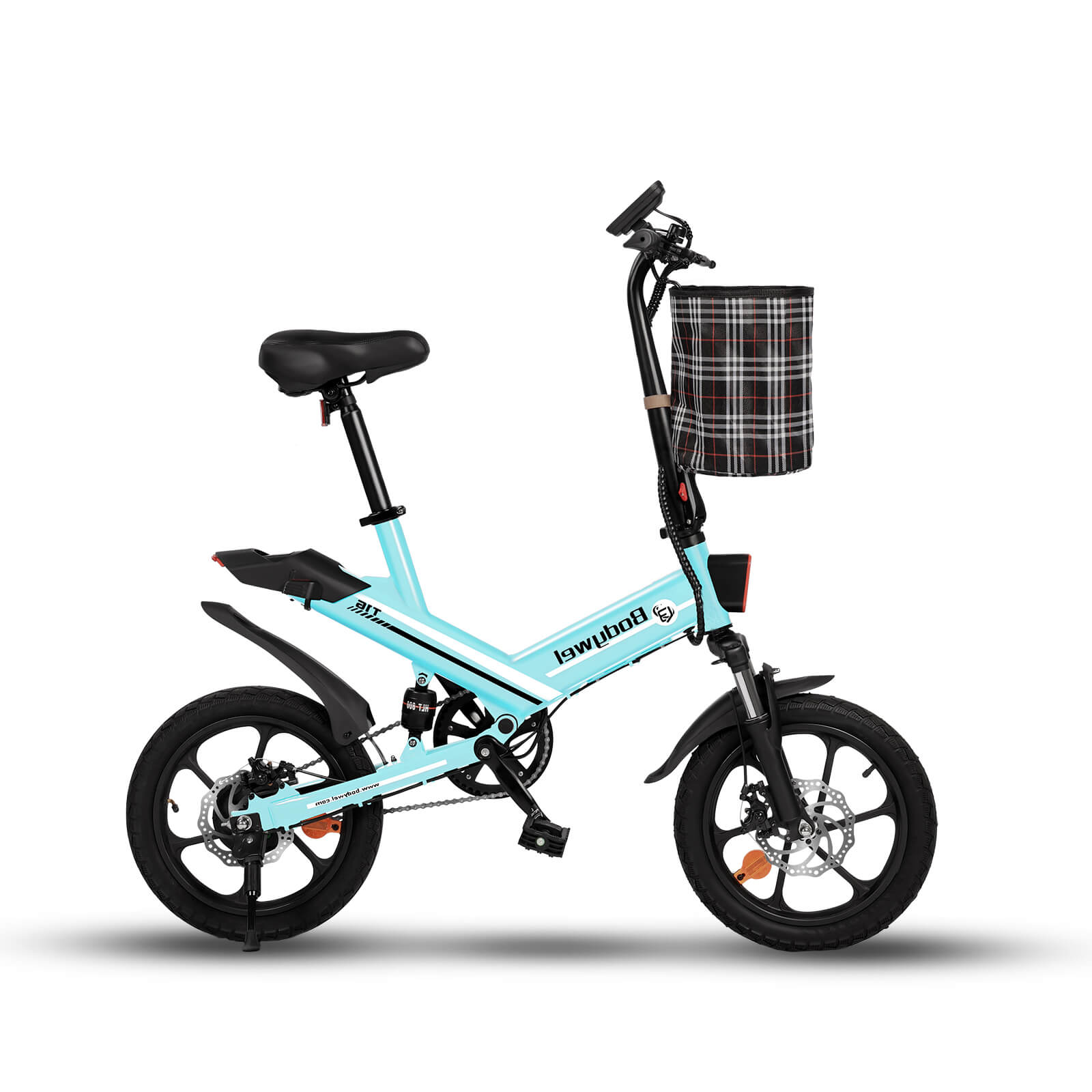Quale materiale è più ampiamente utilizzato per le cornici per biciclette elettriche?

Quando si acquista un bici elettricaIl materiale del telaio gioca un ruolo cruciale nel determinarne le prestazioni, la durata e l'esperienza di guida complessiva. Comprendere le differenze tra alluminio, ferro, fibra di carbonio e titanio può aiutarti a prendere una decisione consapevole e in linea con le tue esigenze di guida. Ecco una guida completa ai pro e ai contro di ciascun materiale.
Telai in alluminio: leggeri e versatili
L'alluminio è uno dei materiali più comuni utilizzati nei telai delle bici elettriche, apprezzato per il suo equilibrio tra resistenza, peso e convenienza.
Vantaggi dei telai in alluminio:
- Leggero: I telai in alluminio sono significativamente più leggeri di quelli in ferro, rendendo le bici elettriche più facili da manovrare, trasportare e accelerare. Questo è particolarmente importante per i pendolari e i ciclisti urbani.
- Resistenza alla corrosione: L'alluminio è naturalmente resistente alla ruggine e alla corrosione, il che lo rende ideale per i ciclisti che vivono in ambienti umidi o costieri.
- Conveniente: I telai in alluminio sono generalmente più convenienti rispetto alle opzioni in fibra di carbonio o in titanio.
- Rigido ed efficiente: La rigidità dell'alluminio consente un trasferimento efficiente della potenza, ideale per strade asfaltate e lisce e per gli spostamenti urbani.
Contro dei telai in alluminio:
- Meno confortevole su terreni accidentati: A causa della loro rigidità, i telai in alluminio possono trasmettere più vibrazioni e urti, soprattutto su superfici irregolari.
- Durata sotto stress: Sebbene sia durevole, l'alluminio tende a rompersi in caso di sollecitazioni estreme o dopo un uso prolungato.
Telai in ferro: resistenza e stabilità
Il ferro (spesso chiamato acciaio nel settore ciclistico) è un materiale classico per i telai, noto per la sua resistenza e resilienza.

Vantaggi dei telai in ferro:
- Robusto e durevole: I telai in ferro possono sopportare carichi e urti pesanti, il che li rende ideali per le bici elettriche da carico o per i modelli da turismo.
- Qualità di guida fluida: La flessibilità naturale del ferro assorbe le vibrazioni della strada, garantendo una guida più fluida sui terreni accidentati.
- Riparazioni più facili: A differenza dell'alluminio, i telai in ferro possono spesso essere riparati anziché sostituiti se danneggiati.
Contro dei telai in ferro:
- Peso massimo: I telai in ferro sono notevolmente più pesanti di quelli in alluminio, il che può ridurre la velocità e rendere la manovrabilità più macchinosa.
- Tendente alla ruggine: Il ferro è soggetto a ruggine se non viene trattato o mantenuto correttamente.
- Trasferimento di potenza meno efficiente: La flessibilità aggiuntiva che migliora il comfort può anche ridurre l'efficienza della pedalata su strade più lisce.
Telai in fibra di carbonio: leggeri e orientati alle prestazioni
La fibra di carbonio è un materiale di alta qualità utilizzato principalmente nelle bici elettriche ad alte prestazioni.

Vantaggi dei telai in fibra di carbonio:
- Ultraleggero: I telai in fibra di carbonio rappresentano la soluzione più leggera e garantiscono velocità e agilità eccezionali.
- Assorbimento degli urti superiore: Il suo design flessibile riduce al minimo le vibrazioni, ideale per i tragitti lunghi.
- Design elegante: La fibra di carbonio consente di realizzare forme di telaio creative e aerodinamiche.
Contro dei telai in fibra di carbonio:
- Costoso e fragile: La fibra di carbonio è costosa e può rompersi in caso di urti violenti, rendendo necessarie riparazioni professionali.
- Meno comune nelle bici elettriche di fascia media: A causa del suo costo elevato, la fibra di carbonio si trova principalmente nei modelli di fascia alta.
Montature in titanio: resistenti e di alta qualità
Il titanio è un materiale di alta qualità che offre una resistenza paragonabile a quella del ferro e la leggerezza dell'alluminio.
Vantaggi delle montature in titanio:
- Durata eccezionale: Le montature in titanio sono altamente resistenti agli urti, garantendo un'affidabilità a lungo termine.
- Resistente alla corrosione: Il titanio resiste alla ruggine e all'usura ed è perfetto per le condizioni atmosferiche più difficili.
- Qualità di guida confortevole: La sua leggera flessibilità aiuta ad assorbire gli urti, rendendo la guida più fluida.
Contro delle montature in titanio:
- Costo elevato: Le montature in titanio sono tra le più costose a causa del complesso processo di fabbricazione.
- Meno ampiamente disponibile: A causa del suo costo e della complessità della sua produzione, il titanio è meno comune nelle e-bike più diffuse.
Quando si sceglie un 14" mini e-bike urbanaIl materiale del telaio gioca un ruolo cruciale in termini di peso, durata, prestazioni e esperienza di guida complessiva. Molti modelli concorrenti in questa categoria si affidano a telai in ferro, ma la T16 PRO adotta un approccio superiore con il suo telaio in lega di alluminio. Ecco perché questa scelta fa un'enorme differenza.
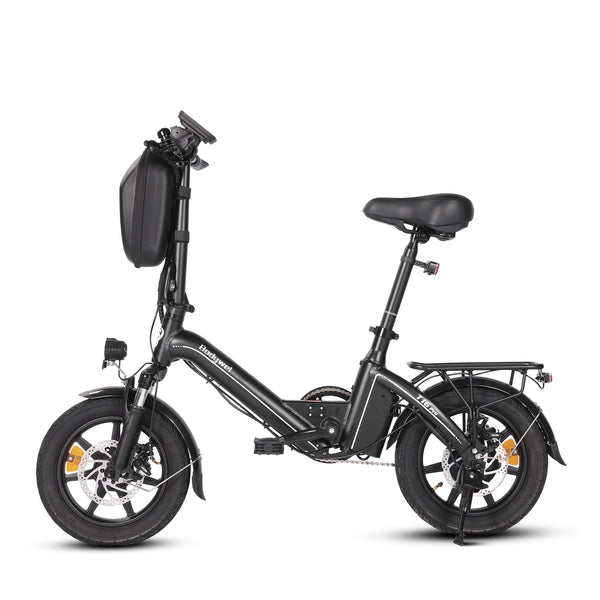
Quale montatura è più adatta a te?
La scelta del materiale giusto per il telaio dipende dal tuo stile di guida, dal tuo budget e dalle tue aspettative in termini di prestazioni:
- Per i pendolari urbani: I telai in alluminio offrono il mix perfetto tra convenienza, peso ed efficienza.
- Per gli amanti dell'avventura: I telai in ferro garantiscono maggiore resistenza e comfort sui terreni accidentati.
- Per ciclisti performanti: I telai in fibra di carbonio garantiscono velocità e precisione senza pari.
- Per una durata a lungo termine: I telai in titanio combinano resistenza, resistenza alla ruggine e leggerezza, garantendo i vantaggi per i ciclisti più esigenti.

Conclusione
Scegliere il giusto materiale per il telaio della tua e-bike è fondamentale per migliorare la tua esperienza di guida. L'alluminio offre leggerezza ed efficienza per le uscite quotidiane, il ferro offre resistenza per le condizioni più impegnative, mentre la fibra di carbonio o il titanio sono ideali per chi cerca prestazioni di alto livello. Comprendere queste differenze ti aiuterà a trovare la e-bike perfetta per il tuo stile di vita e i tuoi obiettivi di guida.
L'alluminio rimane il materiale più utilizzato nel mercato delle e-bike grazie alla sua convenienza
0 commenti




